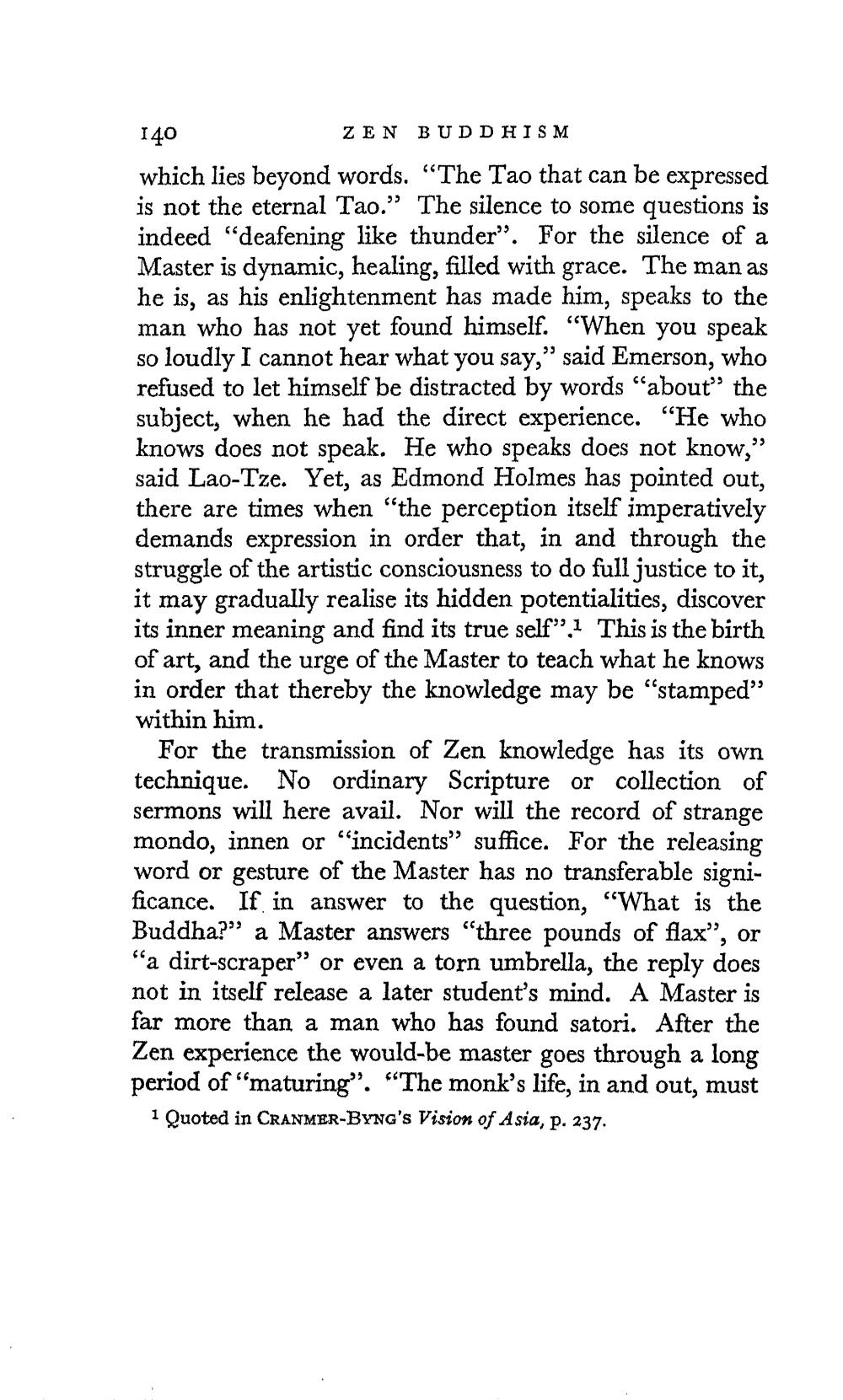________________
140
ZEN BUDDHISM which lies beyond words. “The Tao that can be expressed is not the eternal Tao.” The silence to some questions is indeed "deafening like thunder". For the silence of a Master is dynamic, healing, filled with grace. The man as he is, as his enlightenment has made him, speaks to the man who has not yet found himself. “When you speak so loudly I cannot hear what you say," said Emerson, who refused to let himself be distracted by words about the subject, when he had the direct experience. "He who knows does not speak. He who speaks does not know," said Lao-Tze. Yet, as Edmond Holmes has pointed out, there are times when "the perception itself imperatively demands expression in order that, in and through the struggle of the artistic consciousness to do full justice to it, it may gradually realise its hidden potentialities, discover its inner meaning and find its true self", 1 This is the birth of art, and the urge of the Master to teach what he knows in order that thereby the knowledge may be "stamped" within him.
For the transmission of Zen knowledge has its own technique. No ordinary Scripture or collection of sermons will here avail. Nor will the record of strange mondo, innen or "incidents" suffice. For the releasing word or gesture of the Master has no transferable significance. If in answer to the question, "What is the Buddha?” a Master answers "three pounds of flax”, or “a dirt-scraper" or even a torn umbrella, the reply does not in itself release a later student's mind. A Master is far more than a man who has found satori. After the Zen experience the would-be master goes through a long period of maturing”. “The monk's life, in and out, must
1 Quoted in CRANMER-BYNG's Vision of Asia, p. 237.




